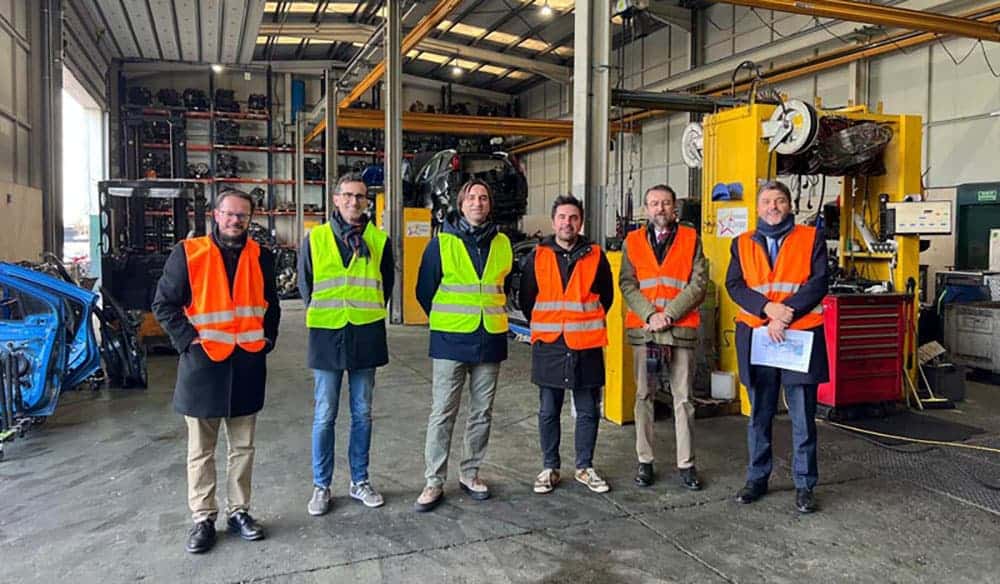Spain Advances Circular Economy Investment Projects
Spain launches €1.2 billion circular economy investment programs, enhancing sustainability and industrial efficiency. Investors and green funds can access co-financed projects with ESG-aligned growth and productivity gains.

Spain’s implementation of European Commission-backed projects to accelerate the circular economy demonstrates a strategically coordinated effort to marry industrial modernization with urgent environmental sustainability goals. On November 10, EU agencies highlighted a massive commitment aimed at enhancing resource efficiency, reducing waste, and developing robust recycling and secondary material markets.
The scale of the investment is significant: projects totaling over €1.2 billion are designed to mobilize both public and private co-financing. This investment is forecast to generate a material economic lift of 0.1–0.2 percentage points of additional GDP growth annually in the medium term and create over 15,000 new jobs in crucial sectors like high-tech manufacturing, green logistics, and specialized innovation.
Mechanistically, these programs utilize a sophisticated blend of grants, concessional loans, and targeted technical support, allowing industrial actors—particularly SMEs—to retrofit existing plants, rapidly scale novel recycling technology, and integrate stringent ESG standards into their operational processes. The financial structure relies on a substantial leverage ratio expected at 1:3, meaning every €1 of public (EU or national) contribution is designed to attract €3 in private capital.
This structure creates a powerful multiplier effect, boosting employment, innovation diffusion, and local value creation. Institutional investors, including asset managers and pension funds, are strategically positioned to engage via dedicated green bonds, private equity allocations in clean-tech start-ups, or specialized co-financing funds explicitly aligned with evolving EU taxonomy criteria.
Macro and sectoral effects of this transition are profoundly multifaceted. Resource-intensive industries, such as chemicals, base metals, automotive, and packaging, will initially face intense efficiency pressures but gain a critical long-term competitive advantage from preferential access to EU capital and market incentives. The anticipated employment gains will be concentrated in regional industrial hubs, supporting wage growth and consumption across designated areas.
Furthermore, the program is poised to reduce Spain’s persistent reliance on imported raw materials, with potential annual improvements to the trade balances estimated between €300–400 million if circular principles are effectively embedded across key supply chains. This process also significantly strengthens Spain’s environmental credentials ahead of upcoming EU climate compliance metrics, potentially reducing ESG-related financing spreads for compliant corporates.
Market implications signal a sustained reallocation of capital. Institutional portfolios are expected to favor green infrastructure and listed firms demonstrating superior integration of circular practices. Conversely, Spanish banks providing project finance or green loans may see enhanced risk-adjusted returns due to the underlying EU co-funding and regulatory guarantees reducing counterparty risk.
The regulatory framework acts as a powerful green pull factor: firms failing to meet the new ESG or efficiency benchmarks could face structurally higher borrowing costs, diminished access to critical EU grants, or significant reputational costs, creating a bifurcated corporate credit market.
Forward-looking risks center on the efficiency of policy execution, the speed of private capital mobilization, and the rate of technological adoption by legacy industries. Key measurable indicators for success will include project approval rates, volumes of private co-investment achieved, measured sectoral productivity improvements, and verified net employment metrics.
The next 18 months are critical for assessing project scalability and replicability. Successful implementation could establish Spain as the leading model for broader EU circular economy programs, whereas delays or insufficient industry adoption could weaken Spain’s industrial competitiveness and slow the nation's sustainable growth trajectories.





